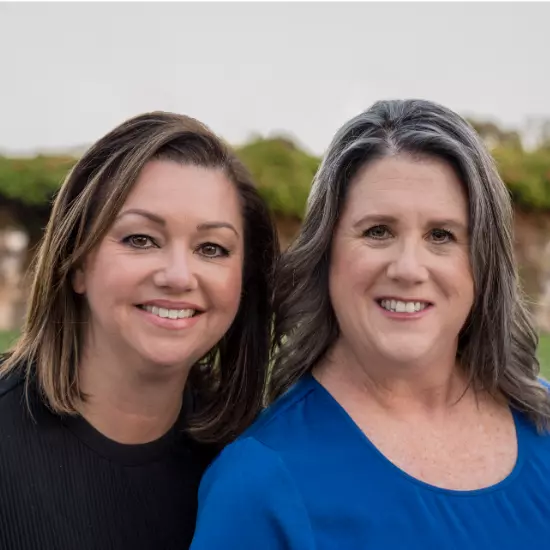Walk a reminder that community and recovery are within reach
When Laura lost custody of her children, she felt as if her world had collapsed. Struggling with addiction and the weight of past trauma, she questioned whether recovery was even possible. The future seemed uncertain, and hope felt out of reach.
Today, her life looks very different.
Laura, who is being identified only by her first name to protect her privacy, now works as a certified counselor at the Kiva Women and Children’s Learning Center, a McAlister Institute program where mothers live with their children while receiving treatment, helping other women navigate the same difficult road she once walked. She lives in National City, staying connected to the communities she serves.
Her journey from loss to stability demonstrates the impact of recovery programs that prioritize trauma-informed care, compassion, and community.
Laura’s story is not unique, but it is powerful. Like many women, her childhood was marked by trauma that led to early substance use.
She recalls beginning to drink and experiment with drugs as a child, and the cycle of abuse, unstable relationships, and addiction carried into adulthood. By the time she lost her children she had reached a breaking point. “When I walked through the door, I was dead,” she said of her first day entering treatment. “Every day, I just tried to do better than the day before.”
Her path to sobriety began at McAlister Institute, one of San Diego’s largest and longest-running providers of recovery services. Founded in 1977 by Jeanne McAlister, the nonprofit has spent nearly five decades supporting individuals and families affected by substance use.
The Institute serves more than 19,000 people annually, offering a wide range of programs that include detox, residential and outpatient treatment, therapy, vocational training, parenting support, and mental health counseling.
McAlister Institute operates six women-focused programs, each designed to meet women where they are in their recovery journey. These include detox services, residential and outpatient treatment, therapy, parenting support, and peer mentorship.
At Kiva, mothers can live on-site with their children while undergoing treatment. The model allows families to remain together and children to thrive, while mothers focus on their recovery in a supportive, structured environment.
The Kiva Women’s Detox Center offers a safe and structured environment for those taking their first steps toward sobriety. From there, women can transition into residential or outpatient care, depending on their needs. The continuum of services allows each woman to move forward at her own pace, while still maintaining strong connections with counselors and peers. Childcare responsibilities are shared among participants, creating a peer-led system of support.
Laura credits this environment with giving her the stability she needed to rebuild her life. “In October, I’ll have 15 years clean,” she said.
“I never want to be that broken again.”
For her, the transformation has meant not only her own recovery but also reconciliation with her children and the joy of being a grandmother. Today, she lives with her daughter and helps care for her grandson, a role she says brings meaning and gratitude to her everyday life.
Her work at Kiva is a daily reminder of what is possible. She sees women arrive uncertain, fearful, and carrying the heavy weight of trauma, and she has the privilege of watching them transform. “It’s satisfying because you see them start to smile, you see them play with their kids, you see them make friends with other women for the first time,” she said. “It’s those little things that make it so fulfilling.”
Laura’s journey is also a testament to the broader impact of McAlister Institute’s mission. For nearly five decades, the organization has helped hundreds of thousands of individuals take their first steps toward recovery and independence. Each program is rooted in the belief that no one is beyond hope, and that with the right support, lasting change is possible.
Walk for Sobriety: A Community Celebration
Community support is another critical piece of the recovery process. The upcoming 13th Annual Walk for Sobriety, set for Saturday, Sept. 27, at NTC Park in Liberty Station, gives the public a chance to take part. Check-in and registration begin at 8 a.m., followed by the 5K walk, which raises funds for recovery programs across San Diego County.
Participants can walk, run, or join virtually.
Families attending the event can enjoy live music, arts and crafts, games, a kids’ activity area, and booths offering information on community resources.
The Walk is both a fundraiser and a celebration, highlighting the role of community in sustaining recovery. This year’s Walk holds special meaning, as it honors McAlister Institute founder Jeanne McAlister, who will celebrate her 93rd birthday and 68 years of sobriety.
For Laura, the event is another chance to share her journey and encourage others. She hopes that by telling her story, she can reach women who feel as hopeless as she once did. “If you need help, get it,” she said simply.
As the Walk for Sobriety approaches, her words resonate as both a message of encouragement and a call to action. Recovery is possible, and with the support of programs like McAlister Institute, women and families across San Diego can reclaim their lives.
“I’m doing the walk and I have been in the committee every year since the beginning!”
Categories
Recent Posts










GET MORE INFORMATION


